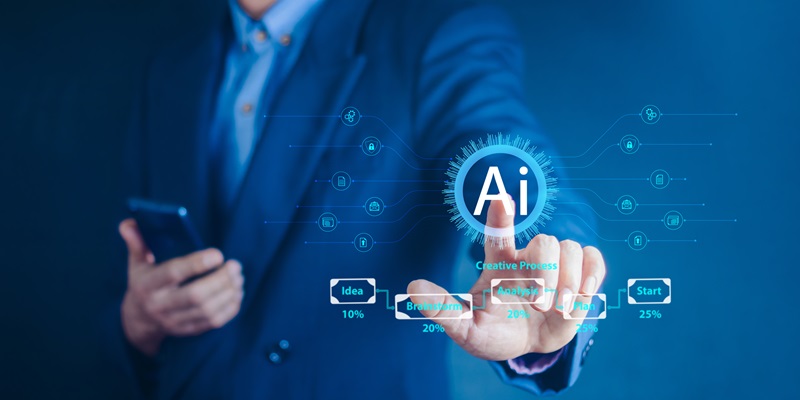In today’s rapidly evolving digital landscape, the integration of artificial intelligence (AI) emerges as a vital component driving marketing trends. This article explores the pivotal role of AI in marketing automation, its current impact, and the exciting prospects it holds for the future.
The Role of AI in Marketing Automation
AI is undeniably transforming the marketing automation landscape, provoking exciting advancements that are set to unfold by 2024. Leveraging AI technology in marketing automation streamlines processes, enhances customer experiences, and empowers businesses to stay ahead in a competitive market.
Major Shifts in Marketing Automation due to AI
As AI continues to revolutionize marketing automation, it has led to three significant shifts that shape the industry’s landscape. Firstly, a sense of urgency has emerged to adopt AI-powered solutions to stay relevant in the market. The second shift is evident in the increased investments in software-as-a-service (SaaS) platforms that seamlessly integrate AI. Lastly, AI has opened up new promising use cases previously unexplored, propelling marketing automation into uncharted territories.
AI-Powered Live Chat
AI-powered live chat has become an integral part of customer service and support. By employing AI algorithms, live chat systems can accurately answer simple customer queries, ensuring quick and efficient resolutions. Moreover, these systems possess the ability to escalate conversations with full context, directing complex queries to the right human personnel. This seamless integration of human and AI assistance in live chat offers a valuable customer experience.
NLP for Conversational AI
Natural Language Processing (NLP) plays a critical role in making conversational AI solutions more human-like. By employing NLP techniques, businesses can create automated chat systems that understand and respond to customer queries in a conversational manner. This transformation in customer interactions leads to a more personalized and engaging experience, fostering stronger relationships between businesses and their customers.
AI Sentiment Analysis and Customer Insights
The implementation of AI-powered sentiment analysis enables businesses to glean valuable insights from customer interactions. By analyzing customer sentiment, businesses can gauge customer satisfaction levels, identify pain points, and pinpoint areas of improvement. These insights empower businesses to proactively enhance customer relationships, providing a more personalized and satisfactory experience.
Evolution of Voice Assistants
Voice assistants, a rapidly emerging AI-powered technology, are heading towards sounding more human. The integration of AI enables voice assistants to understand natural language, tone, and context, creating a more intuitive and engaging conversational experience. As voice assistants continue to evolve, they will increasingly become indispensable in providing seamless customer service and support.
Internal Use of AI-Powered Live Chat
AI-powered live chat systems hold immense potential beyond customer service and support. Support teams are finding innovative ways to utilize live chat systems for internal educational purposes. By leveraging chatbot technology, businesses can train and educate their staff efficiently, promoting continuous learning and improvement within the organization.
Customers’ expectations for AI in business are evolving as the reliance on AI continues to grow. By 2025, it is expected that customers will naturally expect to find chatbots readily available on a business’s website or app. For businesses aiming to provide stellar customer experiences, incorporating AI-powered chatbots has become a necessity rather than a luxury.
The Potential of AI-Powered Predictive Analytics
Among the most promising applications of AI in marketing automation is predictive analytics. AI-powered predictive analytics allows businesses to make data-driven decisions, automate processes, and create reliable “set-and-forget” automated customer journeys. This empowers businesses to optimize marketing strategies, personalize customer experiences, and maximize overall efficiency.
The pervasive influence of AI on marketing automation cannot be underestimated. The rapid advancements in AI technology are reshaping the marketing landscape, providing endless opportunities for businesses to enhance customer experiences, streamline processes, and achieve significant growth. As we navigate into an AI-driven future, staying abreast of emerging trends and leveraging AI-powered solutions will undoubtedly contribute to a competitive edge in the ever-evolving marketplace.

